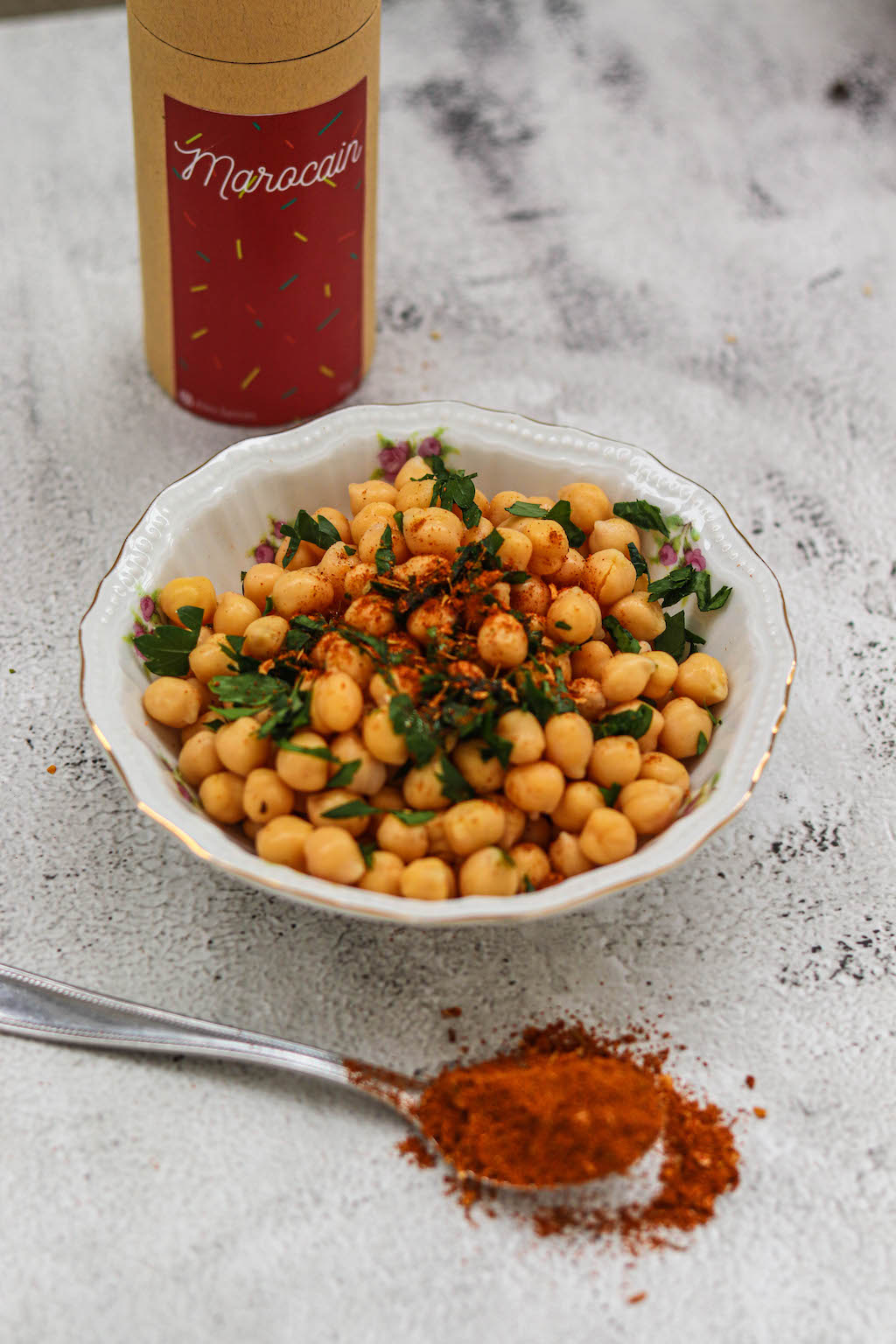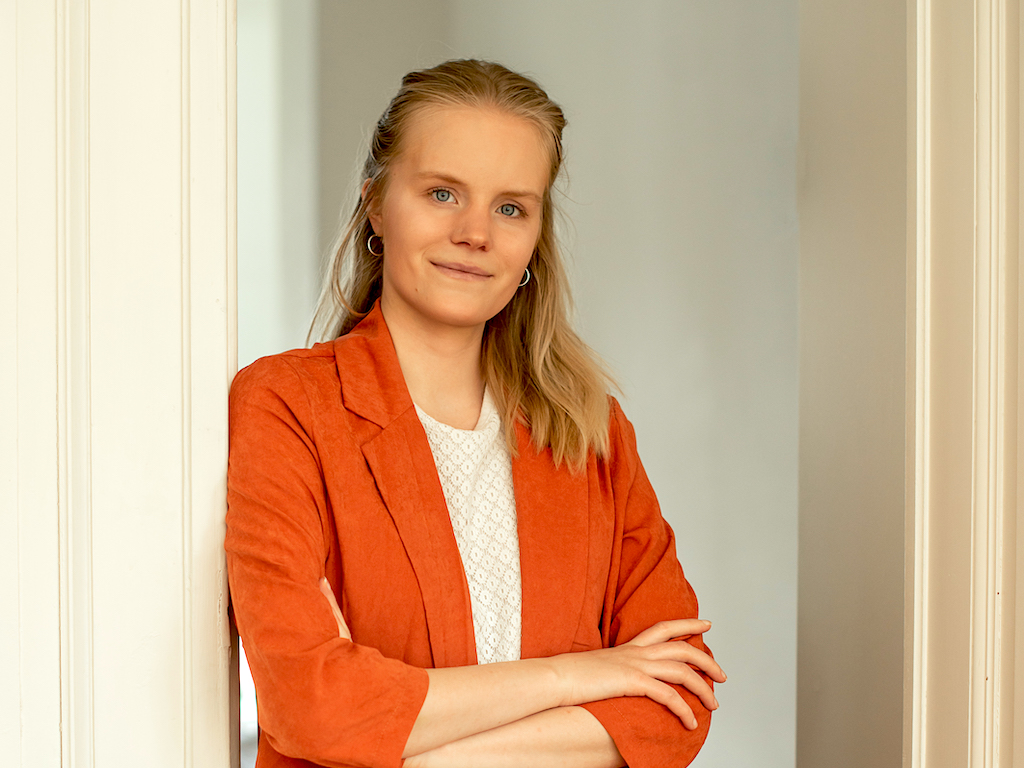Q&A: Meet The Butcher’s Daughter Who Advocates For Alt Meat “The Future Of Protein Will Look Different In Every Country”
7 Mins Read
Auriane Borremans was born into a family of butchers and she went on to start her career in the food industry, where she gained experience almost multiple aspects of the food industry, from working at a Michelin-starred restaurant to studying food innovation and leadership and collaborating with major players like Chipotle and Starbucks to develop new products for consumers. Now, Borremans is a proponent for alternative proteins – which she believes is going to be the future – and leads Eatention, a Belgium-based company dedicated to working with food brands to develop new sustainable foods. We recently spoke with the alt meat advocate who has been chosen as one of the “30 most inspiring women under 30” in Belgium, where we had the opportunity to hear all about her mission, her thoughts on the plant-based movement and the trends that will shape the future of food.
GQ: You grew up as a butcher’s daughter. Now you advocate for alternative meat sources. How did that happen?
AB: I was studying the future of food for the past few years and I was focusing on the future of protein as I come from a butcher family and I wanted to better understand why everybody was reducing their meat consumption. When I had the opportunity to study this, and to see why we need to change the way we eat for the planet, that’s when I made up my mind to actually stop eating meat myself for environmental reasons.
GQ: What does your family think of what you do?
AB: My grandfather doesn’t understand why I do what I do, and it’s hard because he started a butcher shop and his granddaughter suddenly decided to stop eating meat. Their generation has very little understanding of the background of food. My father is a visionnaire, he sees the future of protein in plants, just like me. So he’s very happy that I decided to study the future of protein – he’s aware of how meat consumption is going down and so it’s something he wants to understand more of too.
GQ: What is your mission with Eatention?
AB: What I basically do is work with food companies and startups to better understand what the consumer really wants. This isn’t quantitative but qualitative. It means I actually go to markets, restaurants and interview consumers, and I also act like another average consumer too. In doing this, I am able to gain a very good insight into what consumers really want and desire. I then give feedback to the company I am working for. On the other hand, I am also doing on the daily a trend-watch on the food industry, and I provide my feedback and insights in this regard too.

GQ: You travelled the world to study plant-based meats. What was your favourite brand/product?
AB: My favourite brand of plant-based meat I have tasted so far is OmniPork, developed by Hong Kong’s Green Monday. It really tastes like meat to me and it was a really memorable experience. It was a few years back when I was travelling through Hong Kong to study the future of protein in the city, and I contacted the founder and CEO David Yeung and head of marketing Alvin Lee, and they welcomed me to try out OmniPork. It was in Kind Kitchen, their vegan restaurant concept, and OmniPork had only been launched for a few weeks at the time.
Read: Where to eat the best OmniPork dishes across Hong Kong
GQ: What did you learn about the alt protein movement from your travels?
AB: There is definitely a culture clash in the sense that we will not have the same future of protein in different countries. That’s simply because we don’t all have the same history and we hear different stories from our parents. I think the future of protein will be different in its shape and form depending on which country you’re living in. That’s the main takeaway from my travels.
I think the future of protein will be different in its shape and form depending on which country you’re living in.
GQ: You talk a lot about the “Consommateur Lamda” – a French term for the average shopper. What do they want, in your opinion? Are they open to alternative protein?
AB: I think we need to go back to basics. What every consumer wants is taste. They want bite, they want convenience. That’s the average consumer and these are the foundations that have existed for years, and it’s no different and it hasn’t changed when it comes to alternative proteins. Of course, there are regional differences. We have different approaches to our demands on our alternative proteins, and it also depends on the kind of education we have. In Europe, for instance, we tend to have a better education when it comes to cooking vegetables, compared to the average U.S. consumer. In the U.S., the approach will have to be centred on creating alternative meat above all else, because otherwise, they won’t really be able to reduce their meat consumption. In Asia, it’s interesting, because a lot of people in the region don’t eat a lot of meat in terms of intake per person. So the approach there will have to be different too.

GQ: Do you believe it’s important to involve corporates in reshaping the future of food? Or do you think startups are the ones who will make the difference?
AB: I think the startups will always be the ones who give the vision of the future of food, but the bigger impact will come from the corporates. They are large corporations, so when it comes to them making changes, they will produce impacts that reverberate across the industry. Overall, startups are the disruptive companies showing the corporates what the future of food should look like, and then corporates follow.
What every consumer wants is taste. They want bite, they want convenience. That’s the average consumer and these are the foundations that have existed for years, and it’s no different and it hasn’t changed when it comes to alternative proteins.
GQ: Do you think meat will always feature in our diet? What is your take on cell-based meat?
AB: Yes, I think meat will always be a part of our diet. It’s very difficult to remove it for many reasons, including cultural. People will continue eating meat in the future, but the question is how much and how conscious are people going to be about eating it? Regarding cell-based meat, the question for me is how cheaply can it be produced? Right now, there is still a lot of work to do. Another thing is, how tasty is it going to be? Today, the stories we see coming out from the cell-based meat industry can be associated with a lot of science-fiction and the idea that it comes out of a lab. That’s something that can put off consumers. So I’d like to see if they can get over that hurdle of making cell-based meat look appealing and tasty rather than coming from a lab.

People will continue eating meat in the future, but the question is how much and how conscious are people going to be about eating it?
GQ: You have recently launched a line of vegan spice blends called Alex Spices on the fundraising platform Ulule, can you share more about this?
AB: I have been vegetarian for two years and speaking to a lot of people, the biggest reaction that I always got, and still get to this day, is that plant-based cooking is bland and tasteless. People also say that cooking vegetarian food isn’t easy, and this is something that I agree with. When I was just starting to become vegetarian, it was difficult for me because I hadn’t learned how to cook plant-based all my life. It must be the same thing for a lot of people. So to make plant-based cooking accessible and to democratise it, I developed three blends of vegan spices, which can be used in a lot of recipes to make plant-based cooking tasty. This means there is no reason to say vegetarian food is bland anymore.
GQ: Final question – team rice or team noodles?
AB: Team rice! I remember when I was in Hong Kong, it was my first night in the city and I was feeling a bit sick, and I was told to try congee. It was the best recovery meal and it was so tasty.
Lead image courtesy of Auriane Borremans.




